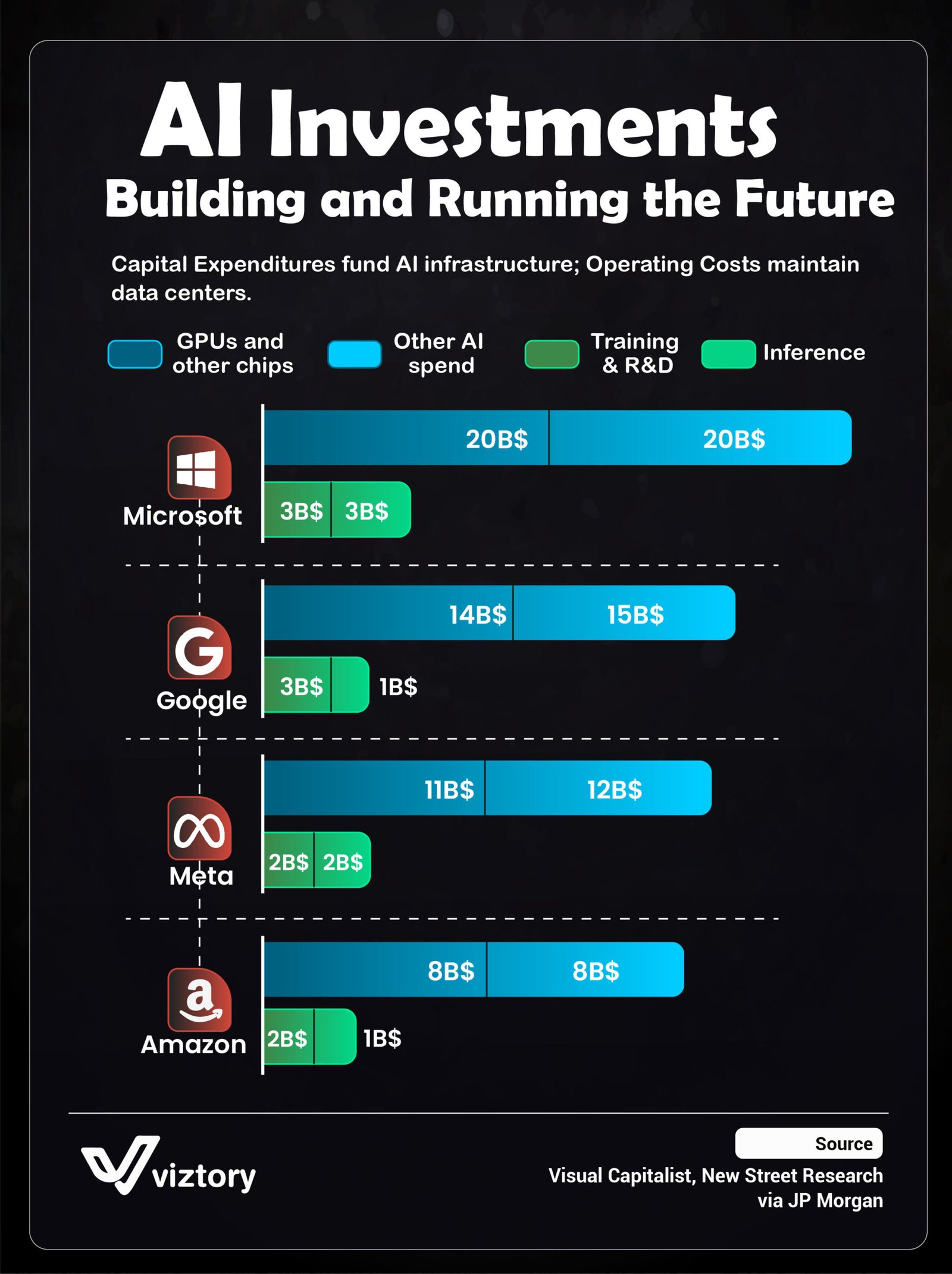AI Investments
Building and Running the Future
Introduction
Artificial Intelligence (AI) has rapidly evolved from a speculative concept into a fundamental driver of innovation, transformation, and economic opportunity. Investing in AI today is not merely about funding algorithms—it is about shaping the digital future of industries, governments, and societies.
Why AI Investment Matters More Than Ever
AI is no longer considered a luxury or an experimental tool. It has become a critical component of modern infrastructure, integrated into sectors such as healthcare, finance, transportation, marketing, and entertainment.
-
Economic Impact: Global forecasts estimate that AI will contribute over $15 trillion to the world economy by 2030.
-
Efficiency and Automation: AI-powered systems enable faster decision-making, reduce operational costs, and allow for continuous scalability.
-
Competitive Advantage: Organizations that invest in AI are not merely adapting to change—they are leading it.
Key Areas of AI Investment
-
Healthcare AI
AI is transforming medical care, from diagnostic imaging to predictive analytics in patient treatment and management. -
Autonomous Systems
Technologies such as self-driving cars, delivery drones, and robotic logistics depend on real-time AI for functionality and safety. -
Natural Language Processing (NLP)
Tools like chatbots, virtual assistants, and content generators are redefining how humans interact with machines. -
AI in Finance
Financial sectors leverage AI for fraud detection, risk management, and algorithmic trading, enhancing both security and efficiency.
Startups vs. Giants: Who’s Winning?
While technology giants such as Google, Amazon, and Microsoft continue to dominate AI investment with multibillion-dollar budgets and acquisitions, startups are emerging as powerful players by focusing on specialized applications, ethical innovation, and agile development.
“Innovation often happens where the big players aren’t looking. The best AI bets are sometimes the least obvious.”
— Lina W., Venture Capital Analyst
Challenges That Come with AI Funding
Despite its promise, AI investment comes with notable risks and concerns:
-
Algorithmic Bias: Improperly trained models can reinforce societal inequalities or produce harmful outcomes.
-
Data Privacy: Rising concerns over personal data use and growing regulatory scrutiny impact AI deployment worldwide.
-
Development Costs: AI systems are expensive to build and maintain, with long timelines before returns are realized—posing challenges for smaller investors.
Addressing these risks requires a commitment to ethical practices, transparent funding, and the inclusion of interdisciplinary teams comprising engineers, ethicists, and policymakers.
Analysis
AI investment is not just a technological initiative—it is a strategic commitment to shaping the future of civilization. It represents both a race for leadership and a responsibility for ethical advancement. Countries and corporations that lead in AI development will have significant influence over global standards, from automation frameworks to digital ethics.
At its foundation, investing in AI is about creating intelligent systems that evolve, adapt, and support human potential—rather than replace it. It is about building capabilities that extend the boundaries of innovation and societal progress.
Conclusion
“AI Investments: Building and Running the Future” is more than a slogan—it is a timely directive. As artificial intelligence becomes more deeply embedded in the fabric of modern life, the decisions and investments made today will define the digital DNA of tomorrow.
Whether you are a startup founder, corporate strategist, or government policymaker, one truth stands out: the future is being designed, coded, and funded—right now.

